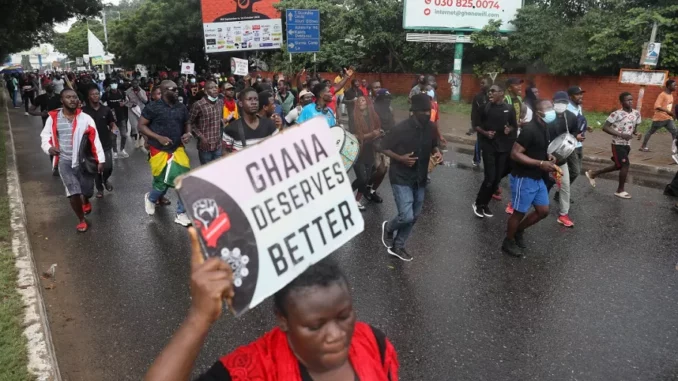
The Ghanaian government faces accusations of authoritarianism from Civil society groups and political parties following the continued detention of around 40 protesters arrested during a demonstration in the capital against illegal gold mining.
The strongest criticism comes from the main opposition party, the National Democratic Congress (NDC), which condemned what it described as a justice system controlled by the Government. The NDC’s statement labeled the police and judiciary as “brutal” and serving a “corrupt Government.” According to Chris Atadika, a political science researcher at the University of Ghana, such accusations are unsurprising. “There are multiple factors influencing voter decisions. While economic issues are important, people also want to feel secure, especially when protesting against illegal gold mines and the pollution of water supplies,” he said.
Just a week earlier, the NDC accused the electoral commission of favoritism toward the ruling New Patriotic Party (NPP), aiming to undermine the credibility of the government and, by extension, the upcoming December 7 presidential election. Atadika believes this has heightened public awareness ahead of the election, adding, “This is one of the many reasons why it will be difficult for the NPP to secure victory this year.”
Interestingly, in 2016, it was the NPP, then in opposition, that organized widespread protests—a strategy that helped propel them to power in that year’s presidential election.
The NPP accused the opposition of orchestrating the demonstrations, while the NDC claimed the ruling party was using the police to suppress the protesters from behind the scenes.
Ghana’s economy is still recovering from a 2022 financial crisis that led the government to default on its external debt. However, there have been recent signs of recovery, buoyed by a $3bn International Monetary Fund (IMF) package.
Inflation, which peaked at 54% during the crisis, has since fallen to 20.4% in August 2024. The country also reported a 6.9% economic growth rate in the second quarter of 2024, the fastest in five years, surpassing analysts’ expectations.
